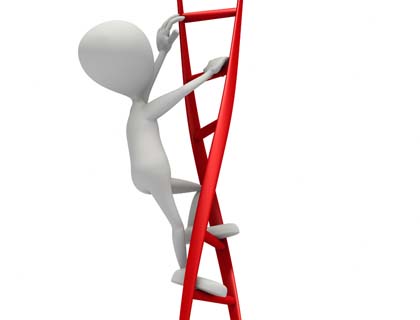How long did the Islamic Emirate of Afghanistan last? Only for six years, 1996-2001. And Afghanistan turned into a hell for the people to live in. This country turned into a safe haven for Islamic terrorists who formed their recruitment and training camps here. Thankfully, Taliban-hosted Al-Qaida hammered on its own feet by attacking the US. It was this network's attack, which triggered the anger of United States and eventually the evil dreams of Taliban and Al-Qaida were broken into pieces. The 9/11 attacks, no doubt, were disastrous for US and the world. But this defeat was the first step of US success to kill Osama bin Laden. If the 9/11 had not happened, today Afghanistan would have turned into a developed state of terrorists.
We would overlook terror attacks resembling to 9/11 and 2005 London bombings and would anticipate large scale and many times bigger terror raids around the world as by now terrorist would have almost found access to nuclear weapons. Thanks to US and its allies intervention as they saved Afghanistan and protected the world. In Afghanistan democracy replaced Taliban's Emirate and is nurturing. If today democracy is not supported to foster in Afghanistan, Islamic Emirate of Afghanistan will reborn - if not democracy then terror, civil war, dictatorship etc. Today, democracy in Afghanistan is not sinking but swimming and developments so far made are clearly substantiating this fact.
Undoubtedly, at present, Afghanistan faces grave challenges – a deteriorated security, a poor economy, destructed infra-structures, deep-rooted corruption and a meager diplomacy, to name only a few – but a country that is ruined in decades can not be rebuilt and reconstructed over nights. The biggest fact that is discoverable by living among and talking to the common Afghan people is that they are now sick of wars and acknowledge the huge losses they have suffered as a result of turning against their own countrymen. These are the people who support government, despite the fatal weaknesses it has. They can launch Arab World-like protests against the government but don't. They know that such actions would lead Afghanistan back to its nineties and the little democracy Afghanistan has today would be lost before it nurtures to become a mature one. To see their country peaceful, Afghans need to wait with patience and continue supporting democratic values in their country.
Many people are of the view that US-imposed democracy is failing in Afghanistan but studies show despite widespread concerns about fraud, foreign interference and ineffectiveness, there remains a clear appetite among many Afghans for a system of democratic representation. A 2-year research report based on research work conducted in six provinces by The Afghanistan Research and Evaluation Unit (AREU) - an independent research institute based in Kabul – was published in May. One of the three key themes that have been specified in the summary of this report says, "The issue of Afghan ownership against foreign imposition was a hot topic for many respondents. While many people saw 'democracy' as an un-welcomed imposition of Western culture and values, there was generally strong support for the idea of selecting representatives via elections. Others also spoke of the need to fix Afghan democracy within an 'Islamic framework,' though this was rarely defined."
Except some provinces in south of Afghanistan, all other support the development of Afghanistan in a democratic framework. Today millions of girls are going to school along with boys while thousands of women are busy in providing civil services and are active in army, politics, medical and almost all other fields of life. A big portion of Afghan populace supports democratic system and this has been proved by their participation in the elections so far held in Afghanistan.
Election is conceived as the strongest pillar of democracy. Running for elections and voting in countries like Afghanistan – where lowest level of security prevails and death follows you at every step – needs boldness and sense of sacrifice for one's country. In spite of all threats, Afghans - both men and women - participated in the presidential, parliamentary and provincial councils' election, which has been held for two times so far. Misfortunately, all the elections conducted in the post Taliban Afghanistan were marred with serious allegations of ballot stuffing and frauds. Such acts are against the election law of Afghanistan and democratic values. The government of Afghanistan was widely defamed by scam-accompanied elections.
But this is not Afghanistan only where elections are so; the problem applies to almost all third world countries, many of the developing nations and even advanced countries. Perhaps, the elections held in Afghanistan are indicators of the public support for the democratic processes and invaluable experience for Afghanistan's Independent Election Commission (IEC). About the 2010 parliamentary election in Afghanistan, the Washington Post on September 21, 2010 wrote in its editorial Progress for Democracy in Afghanistan, "Turnout for the parliamentary election was lower than for last year's presidential race - a phenomenon also common in the United States - but at about the level of the 2005 parliamentary ballot. Afghanistan's Independent Election Commission estimates 40 percent of the votes were cast by women, who in particular are under insurgent threat for showing any public signs of independence or freedom of action. This degree of participation is another indication of the progress being made in developing a democratic political culture." The editorial concludes, "It [Afghanistan] may never reach the ideal of the New England town-meeting model, but it may be close to what passes for democracy in Chicago."
The solution to the problems of Afghanistan lies in a strong democratic system. In Afghanistan democracy has a long way to go. For democracy to triumph in Afghanistan, we need to allow it keep swimming.

